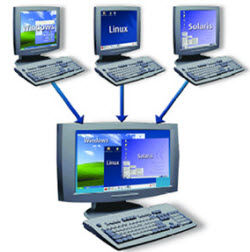The terms "Internet
of Things" and "System of Systems" are concepts that help to explain a great deal about what
is happening, now, where the digital world meets the physical and
intellectual.
In the video below, from IBM, you get a glimpse of it …
Imagine if your alarm clock talked to your calendar and knows you
need to catch the
ferry in 1-1/2 hours to get to work, so it wakes you up. But, a half hour before it wakes you, it turned on the heater in your bathroom; and other sensors started your morning coffee and de-iced
the windshield in your car.
Here are some excerpts from the film:
“Over the past century, but accelerating over the past
couple of decades, we have seen the emergence of a kind of global data
field. The planet itself – natural systems, human systems, and physical
objects – have always generated an enormous amount of data, but we
didn’t used to be able to hear it, to see it, or to capture it. Now we can
because all of this stuff is now instrumented. And it’s all
interconnected, so now we can actually have access to it. So, in
effect, the planet has grown a central nervous system.
Look at that complex set of relationships among all of these complex
systems. If we can actually begin to see the patterns in the data, then
we have a much better chance of getting our arms around this. That’s
where societies become more efficient, that’s where more innovation is
sparked.
When we talk about a smarter planet, you can say that it has two
dimensions. One is to be more efficient, less destructive, and to
connect different aspects of life which do affect each other in more
conscious, deliberate and intelligent ways. But the other is also
to generate fundamentally new insights, new activity, and new forms of
social relations. So you could look at the planet as an information,
creation and transmission system, and the universe was hearing its
information but we weren’t. But increasingly now we can, early days,
baby steps days, but we can actually begin to hear the planet talking to
us.”
This framework applies to many other things (for example, trading and markets). Expect to hear more about this type of insight and automation.

![Reblog this post [with Zemanta]](http://img.zemanta.com/reblog_c.png?x-id=da0c19c4-e1ea-4e39-b2a5-0f753aef5d0f)
![Reblog this post [with Zemanta]](http://img.zemanta.com/reblog_e.png?x-id=c5b72ae6-3900-478e-840d-4214d3ce686d)

